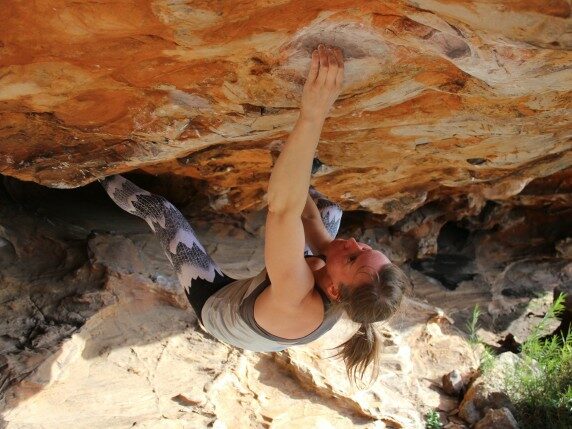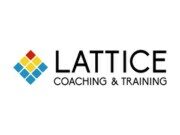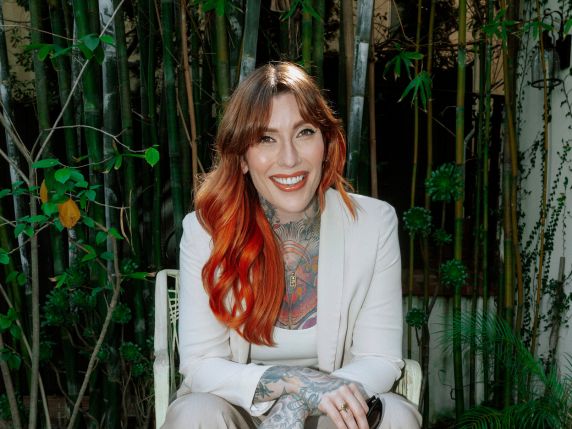Our popular Meet the client series reveals the inside story on the companies we support with legal services. In this edition, we speak to Ella Russell, Legal Counsel and Climbing Coach at Lattice Training. She shares her journey in law and what it’s like as a lawyer to operate successfully inside a business.
What is Lattice Training?
We were co-founded in 2015 by two climbing coaches, Tom Randall and Ollie Torr, and started out by developing an in-person physical profiling assessment to help climbers better understand their relative strengths and areas for improvement to enhance their climbing performance to meet their goals. Having spent years collating data from these assessments, climbers can now compare their physical profile against the biggest dataset in the industry. Our testing protocol covers functional movement, finger strength, aerobic profiling and muscular strength, and we’ve developed our assessments so that they can be undertaken independently by a climber anywhere in the world.
Alongside our assessments, we offer a range of coaching services and training tools all geared towards supporting a climber in improving their performance. This includes training plans (with or without 1:1 coach support), flexibility plans, and nutrition assessments/plans. Our services are now nearly all delivered via our own app which we released earlier this year, called the Lattice Training app. Our training tools have been designed and developed by climbers, for climbers, and they are all supported with free testing toolkits. We support keen amateurs through to professional athletes and international competition climbers aiming to qualify for the Olympics.
Today, Lattice Training has 44 employees, and we have our own training facility, office space and warehouse. Our vision is to offer the world’s best digital training services and physical products for climbing training.
How did you get to be Legal Counsel for Lattice?
I trained to become a lawyer at DLA Piper and specialised as an employment lawyer. I found this specialism the most engaging, predominantly because of the human behaviour and communication aspects which you sometimes have to consider as much as, if not more, than the legal framework. From there, I gradually migrated to my current, more generalist role having spent time as an in-house employment counsel at Rolls-Royce Plc.
You won’t be surprised to learn that I’m really passionate about training and climbing! When Ollie, one of the founders, asked if I would join them as their first female coach but also use my legal skills to help the business grow, it seemed like such a natural fit, I couldn’t say no!
Moving in-house from private practice was the right move for me and still is! I love that no two days are the same, and that you have novel problems to solve which you’re often coming across for the first time. But it’s the team element that I enjoy the most. We’re a close knit bunch focused on driving the business forward to create the best digital experience and training tools possible. As sole legal counsel it’s my job to help us do that in a way which doesn’t leave us too exposed!
How has the business grown?
Since we started, we’ve had strong year on year organic growth and we’ve expanded from a team of 6 when I first joined in 2018 to 44 staff within 5 years. Becoming an Olympic sport from Tokyo 2020 has definitely increased the popularity of our sport and demand for our services and products. To give a sense of scale, our monthly revenue is now more than our whole third year of trading and we’re keen to try and retain the freedom that comes with being self-funded.
What challenges have Lattice faced along the way?
Because we're an SME but we operate globally, we don't have examples of businesses to look up to and say, ‘that's what we're aiming for’. The climbing industry doesn't really have an equivalent of us at the moment, so we face a lot of novel challenges where there isn’t a go-to answer.
This means that we’ve developed an entrepreneurial culture, which really stems from our founders, who’ve always instilled a culture that ‘it’s ok to fail’. We’re comfortable making mistakes and we expect them - the key is that we speak up when things don’t go to plan and support one another to improve. Personally I find this really inspiring and motivating.
How does Harper James support you?
I was always conscious my employment law background would not equip me to advise upon all the areas the business would need, so my goal was to find a full-service law firm that could support an SME on a budget! Although I have access to a legal database, I simply don’t have enough time to research everything myself. I did some searching around and couldn’t find any other firms that matched the Enable plan offering of Harper James – something that could scale to meet our changing needs.
We’ve been working with HJ for several years now. I find our relationship reassuring and I don’t see that changing. I especially take comfort in knowing the Client Services team will understand and deal with any requests efficiently. And as I mentioned, fees are always a consideration, and HJ operates on a pretty lean basis, like us. When time recording statements come through, I don’t see that anyone’s spending more time than I’d expect and I appreciate that.
What advice would you give to others in a similar role to you?
The most important aspect of my role is to be able to identify legal issues as they arise, explain them clearly and succinctly, and then help the team come up with ideas and solutions that best meet the needs of the business. For example, I’m often in meetings where an issue comes up and it’s got a legal component. The team doesn’t want to hear a huge list of all the legal points and options. They want me to use my judgement to narrow the options down, answer questions (and get external support if needed), and then help them decide on the best solution so that we can move forward.
I also find that it’s important to be mindful of how you come across and be comfortable with saying you don't know the answer, but you do know how to find out (and then have the resources and support in place to do this quickly!). Being able to lean on the team at Harper James as backup or a sounding board is great. They understand the need for commerciality and help provide another perspective – which again keeps us moving forward.






